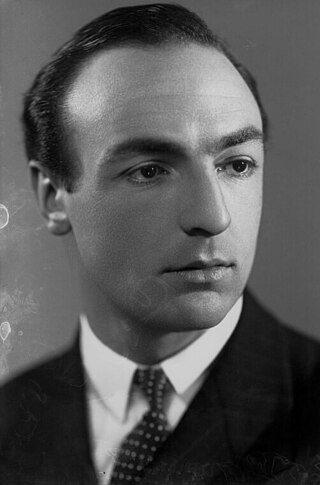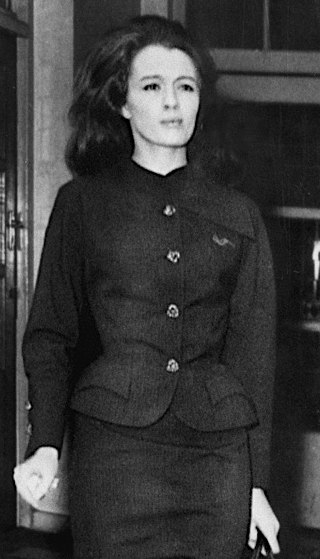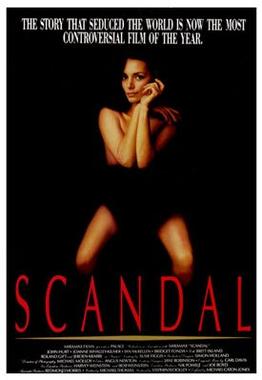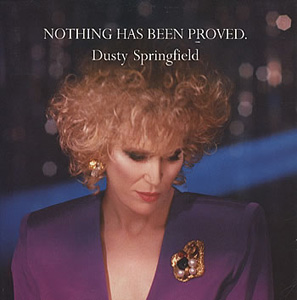Related Research Articles

The Profumo affair was a major scandal in twentieth-century British politics. John Profumo, the 46-year-old Secretary of State for War in Harold Macmillan's Conservative government, had an extramarital affair with the 19-year-old model Christine Keeler beginning in 1961. Profumo denied the affair in a statement to the House of Commons in 1963; weeks later, a police investigation proved that he had lied. The scandal severely damaged the credibility of Macmillan's government, and Macmillan resigned as Prime Minister in October 1963, citing ill health. The fallout contributed to the Conservative government's defeat by the Labour Party in the 1964 general election.

John Dennis Profumo was a British politician whose career ended in 1963 after a sexual relationship with the 19-year-old model Christine Keeler in 1961. The scandal, which became known as the Profumo affair, led to his resignation from the Conservative government of Harold Macmillan.

Babette Louisa Valerie Hobson was a British actress whose film career spanned the 1930s to the early 1950s. Her second husband was John Profumo, a British government minister who became the subject of the Profumo affair in 1963.

Christine Margaret Keeler was an English model and showgirl. Her meeting at a dance club with society osteopath Stephen Ward drew her into fashionable circles. At the height of the Cold War, she became sexually involved with a married Cabinet minister, John Profumo, as well as with a Soviet naval attaché, Yevgeny Ivanov. A shooting incident involving a third lover caused the press to investigate her, revealing that her affairs could be threatening national security. In the House of Commons, Profumo denied any improper conduct but later admitted that he had lied.

Marilyn Foreman, better known as Mandy Rice-Davies, was a Welsh model and showgirl best known for her association with Christine Keeler and her role in the Profumo affair, which discredited the Conservative government of British Prime Minister Harold Macmillan in 1963.

Stephen Thomas Ward was an English osteopath and artist who was one of the central figures in the 1963 Profumo affair, a British political scandal which brought about the resignation of John Profumo, the Secretary of State for War, and contributed to the defeat of the Conservative government a year later.

Scandal is a 1989 British historical drama film, directed by Michael Caton-Jones. It is a fictionalised account of the Profumo affair that rocked the government of British prime minister Harold Macmillan. It stars Joanne Whalley as Christine Keeler and John Hurt as Stephen Ward, personalities at the heart of the affair.

Perec "Peter" Rachman was a Polish-born landlord who operated in Notting Hill, London, England in the 1950s and early 1960s. He became notorious for his exploitation of his tenants, with the word "Rachmanism" entering the Oxford English Dictionary as a synonym for the exploitation and intimidation of tenants.
Captain Yevgeny Mikhailovich Ivanov, also known as Eugene Ivanov, was a naval attaché at the Soviet Embassy in London during the early 1960s, and was also engaged in espionage. His affair with Christine Keeler resulted in another of her lovers, John Profumo, resigning from the United Kingdom government, in what became known as the Profumo affair.
Michael Marion Emil Anacletus Pierre Savundranayagam, usually known as Emil Savundra, was a Sri Lankan swindler. The collapse of his Fire, Auto and Marine Insurance Company left about 400,000 motorists in the United Kingdom without coverage.

"Nothing Has Been Proved" is a song and a single release by British singer Dusty Springfield, written and produced by the Pet Shop Boys. The song was the second collaboration between Springfield and the Pet Shop Boys, following their UK #2 and US #2 hit duet "What Have I Done to Deserve This?" in 1987. "Nothing Has Been Proved" prominently features an orchestral arrangement by Angelo Badalamenti and a soprano saxophone solo, as the song fades, by Courtney Pine. Marshall Jefferson provided a dance mix which appeared on the 12" and CD singles.
Aloysius "Lucky" Gordon was a British-based Jamaican jazz singer who came to public attention during the Profumo affair. He arrived in Scotland from Jamaica in 1948, and moved to London after a few days.
John Arthur Alexander Edgecombe was a British jazz promoter, whose involvement with Christine Keeler inadvertently alerted authorities to the Profumo affair.

Maureen Ward, Countess of Dudley, was a British actress. Born in Glasgow, Scotland, Lady Dudley was the daughter of James Swanson. As Maureen Swanson, she featured in British pictures during the 1950s and retired from acting in 1961, following her marriage to Viscount Ednam.

Stephen Ward is a musical with a book and lyrics by Don Black and Christopher Hampton, with music by Andrew Lloyd Webber. The musical is based on the 1963 Profumo affair involving the War Minister John Profumo and the socialite Stephen Ward who introduced Profumo to his mistress Christine Keeler, who was also involved with a Russian spy. The musical's world premiere was in London's West End at the Aldwych Theatre in 2013.
Yvonne Buckingham is an English actress who appeared in a number of minor or background roles on episodes of British television series or in British films. She played the title role, though only briefly appearing as the deceased victim, in the 1959 film Sapphire, but did appear in the lead role as Christine Keeler in the critically panned 1963 film The Christine Keeler Story.

The Trial of Christine Keeler is a British television series based on the chain of events surrounding the Profumo affair in the 1960s. The six-part series premiered on BBC One in the United Kingdom on 29 December 2019. The series was adapted by screenwriter Amanda Coe and stars Sophie Cookson, James Norton, Ellie Bamber, Ben Miles, Visar Vishka, Emilia Fox, Nathan Stewart-Jarrett and Anthony Welsh.

Wimpole Mews is a mews street in Marylebone, London W1, England. It is known for being a key location in the Profumo affair in the early 1960s.

"Well he would, wouldn't he?", commonly referred to as Mandy Rice-Davies Applies, is a British political phrase and aphorism that is commonly used as a retort to a self-interested denial.

Alicia Brandet was an American actress known for her roles in commedia all'italiana films of the 1960s, including The Dolls (1965), I due evasi di Sing Sing (1964), and Weekend, Italian Style (1966). She is also known for her portrayal of Mandy Rice-Davies in The Christine Keeler Story (1963).
References
- ↑ "The Keeler Affair (1963)". British Board of Film Classification. Retrieved 19 June 2017.
- ↑ "Alicia Brandet as Mandy Rice-Davies and Yvonne Buckingham as Christine Keeler in 'The Christine Keeler Affair'". National Portrait Gallery. Retrieved 8 January 2022.
- 1 2 Farmer, Richard (3 July 2017). "The Profumo affair in popular culture: The Keeler Affair (1963) and 'the commercial exploitation of a public scandal'". Contemporary British History. 31 (3): 452–470. doi: 10.1080/13619462.2016.1261698 .
- ↑ "Christine Keeler Photograph: A Modern Icon". Victoria and Albert Museum . Retrieved 2 February 2014.
- ↑ Farmer, Richard (2018). "An almost continuous picture of sordid vice: The Keeler Affair, the Profumo Scandal and 'Political' Film Censorship in the 1960s" (PDF). Journal of British Cinema and Television. 15 (2). Edinburgh University Press: 228–251. doi:10.3366/jbctv.2018.0416. ISSN 1743-4521.
- ↑ "The story of my life" Haworth, J D S. Tribune; Blackpool Vol. 28, Iss. 34, (Aug 21, 1964): 15.
- ↑ Come back, Stan and Ollie: DEREK MALCOM on films not at all for maiden aunts The Guardian 4 Feb 1971: 8.